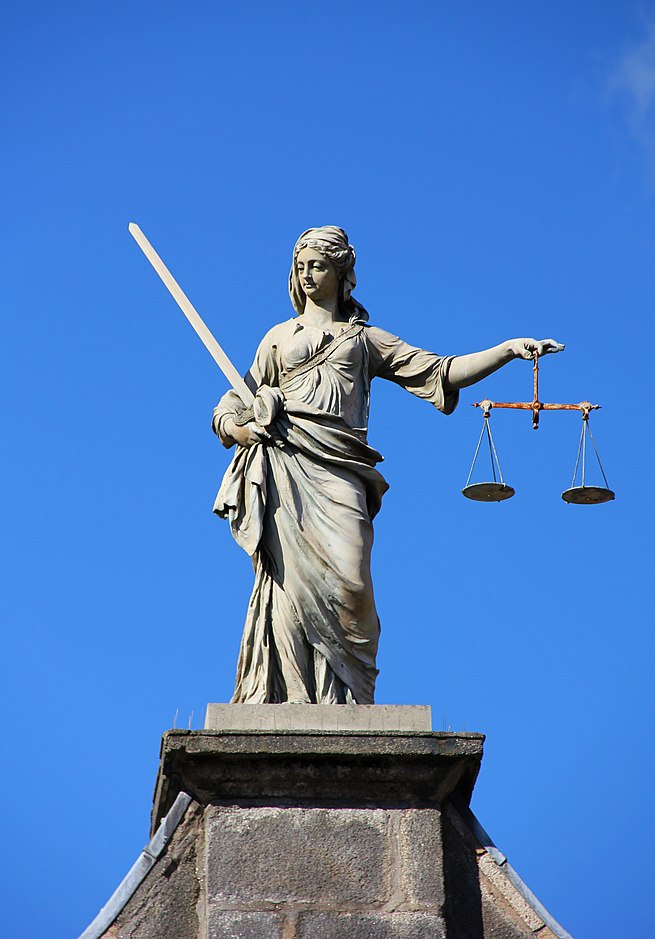
-
Evidence
Evidence, broadly construed, is anything presented in support of an assertion, because evident things are undoubted. There are two kind of evidence: intellectual evidence (the obvious, the evident) and empirical evidence (proofs).
The mentioned support may be strong or weak. The strongest type of evidence is that which provides direct proof of the truth of an assertion. At the other extreme is evidence that is merely consistent with an assertion but does not rule out other, contradictory assertions, as in circumstantial evidence.
In law, rules of evidence govern the types of evidence that are admissible in a legal proceeding. Types of legal evidence include testimony, documentary evidence, and physical evidence. The parts of a legal case which are not in controversy are known, in general, as the “facts of the case.” Beyond any facts that are undisputed, a judge or jury is usually tasked with being a trier of fact for the other issues of a case. Evidence and rules are used to decide questions of fact that are disputed, some of which may be determined by the legal burden of proof relevant to the case. Evidence in certain cases (e.g. capital crimes) must be more compelling than in other situations (e.g. minor civil disputes), which drastically affects the quality and quantity of evidence necessary to decide a case.
Scientific evidence consists of observations and experimental results that serve to support, refute, or modify a scientific hypothesis or theory, when collected and interpreted in accordance with the scientific method.
In philosophy, the study of evidence is closely tied to epistemology, which considers the nature of knowledge and how it can be acquired.
-
Proof (noun)
An effort, process, or operation designed to establish or discover a fact or truth; an act of testing; a test; a trial.
-
Proof (noun)
The degree of evidence which convinces the mind of any truth or fact, and produces belief; a test by facts or arguments which induce, or tend to induce, certainty of the judgment; conclusive evidence; demonstration.
-
Proof (noun)
The quality or state of having been proved or tried; firmness or hardness which resists impression, or does not yield to force; impenetrability of physical bodies.
-
Proof (noun)
Experience of something.
-
Proof (noun)
Firmness of mind; stability not to be shaken.
-
Proof (noun)
A proof sheet; a trial impression, as from type, taken for correction or examination.
-
Proof (noun)
A sequence of statements consisting of axioms, assumptions, statements already demonstrated in another proof, and statements that logically follow from previous statements in the sequence, and which concludes with a statement that is the object of the proof.
-
Proof (noun)
A process for testing the accuracy of an operation performed. Compare prove, transitive verb, 5.
-
Proof (noun)
Armour of excellent or tried quality, and deemed impenetrable; properly, armour of proof.
-
Proof (noun)
A measure of the alcohol content of liquor. Originally, in Britain, 100 proof was defined as 57.1% by volume (not used anymore). In the US, 100 proof means that the alcohol content is 50% of the total volume of the liquid, and thus, absolute alcohol would be 200 proof.
-
Proof (adjective)
Used in proving or testing.
“a proof load; a proof charge”
-
Proof (adjective)
Firm or successful in resisting.
“proof against harm”
“waterproof; bombproof.”
-
Proof (adjective)
Being of a certain standard as to alcohol content.
-
Proof (verb)
To proofread.
-
Proof (verb)
To make resistant, especially to water.
-
Proof (verb)
To allow yeast-containing dough to rise.
-
Proof (verb)
To test the activeness of yeast.
-
Evidence (noun)
Facts or observations presented in support of an assertion.
“There is no evidence that anyone was here earlier.”
“We have enough cold hard evidence in that presentation which will make a world of pain for our parasitic friends at Antarctica.”
-
Evidence (noun)
Anything admitted by a court to prove or disprove alleged matters of fact in a trial.
-
Evidence (noun)
One who bears witness.
-
Evidence (noun)
A body of objectively verifiable facts that are positively indicative of, and/or exclusively concordant with, that one conclusion over any other.
-
Evidence (verb)
To provide evidence for, or suggest the truth of.
“She was furious, as evidenced by her slamming the door.”
